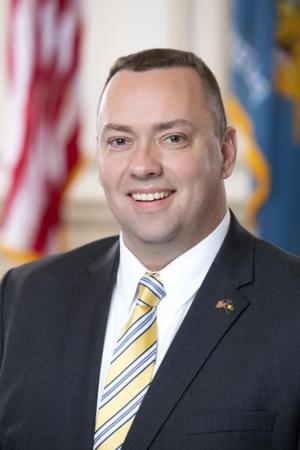A bill giving the state authority over county zoning decisions made it through the Senate May 15 by a 13-8 vote with two amendments. Sen. Russ Huxtable, D-Lewes, was one of two Democrats who voted against the bill.
Senate Bill 75, sponsored by Sen. Trey Paradee, D-Dover, limits the zoning and operation restrictions a county can place on retail marijuana operations, superseding county jurisdiction.
The two amendments added by Paradee were, first, a technical one relating to existing code covering a conversion license, and second, a statement that a county may not prohibit the operation of a retail marijuana store in an area zoned for commercial or industrial use if it is within 500 feet of a place of worship. Paradee said most businesses would be operating after worship service is finished.
“Having a 500-foot setback for every church makes it more difficult to have a marijuana operation,” Paradee said.
Under the bill, restrictions would prohibit retail marijuana stores from operating within a half-mile of each other, and within 500 feet of a school, licensed child care, residential treatment facility, park or library, or place of worship outside of a commercial or industrial zone.
Paradee said Sussex County council has effectively made it illegal to operate a retail marijuana store after passing an ordinance limiting businesses within three miles of each other, any municipal boundary, church, school, college or substance abuse treatment facility.
“It’s a pretty broad distance,” he said. “There are no places to put them.”
Paradee said all the medical marijuana facilities have been operating quietly and out of sight. The bill allows the medical facilities to obtain a conversion license for retail sales.
Sen. Brian Pettyjohn, R-Georgetown, asked if anyone has spoken with county officials, and Paradee answered no.
“I find it ironic that the long title [of the bill] has ‘local control’ in it,” Pettyjohn said. “This takes that concept and throws it out the window … We’re starting something with this bill that is very dangerous.”
Pettyjohn said state legislators should not tell county officials what they should build.
“When it comes to what’s built next to your property, what’s going to affect your property values from that day forward, those decisions need to be made at the local level, not here in this building,” he said.
The state should not dictate what can or cannot be built in local communities, he said.
“We start it now, I’m not sure where it’s going to end,” Pettyjohn said. “The county that I live in stands opposed to it.”
Paradee said people asked for the change because they want to be able to buy a legal product in Sussex County. He further said marijuana advocates and store owners are telling him the bill is still too restrictive. “It was done to be respectful for what they’ve done in Sussex County,” he said.
Still, Pettyjohn said if the new Sussex County Council wants to amend its ordinance, it’s up to them, and if locals don’t like the council’s decision, citizens will vote them out.
“We should not be telling these local governments that we know better than you,” he said.
“We are not in all of those communities. It’s not my place to make a zoning decision for them in the Senate chamber.”
Senate Minority Leader Gerald Hocker, R-Ocean View, agreed and said taking away local control is a big step backward. “In no way do I want to see us interfere with the local decisions ... I feel they know what’s best and not the state Legislature.”
Speaking after the session, Huxtable said he supports local control and believes the bill is the wrong approach, particularly when there are new members on Sussex County Council who are now involved in decision-making.
“It’s different than the council that passed all the restrictions,” he said.
Also speaking after the session, Paradee said state involvement in zoning issues is not new, citing a state decision in the 1960s to prevent construction of a refinery south of Delaware City.
The bill now goes to the House for consideration, where another bill has been introduced to clear up certain language in the original marijuana legalization bill. The FBI has questioned wording regarding background checks, and House Bill 19, sponsored by Rep. Ed Osienski, D-Newark, with Senate support by Paradee, would clarify that Department of Finance employees, contractors or third parties must submit a criminal background check and undergo continuous criminal history monitoring.
HB 19 unanimously passed the House April 15 with only Rep. Stell Parker Selby, D-Milton, absent.
Melissa Steele is a staff writer covering the state Legislature, government and police. Her newspaper career spans more than 30 years and includes working for the Delaware State News, Burlington County Times, The News Journal, Dover Post and Milford Beacon before coming to the Cape Gazette in 2012. Her work has received numerous awards, most notably a Pulitzer Prize-adjudicated investigative piece, and a runner-up for the MDDC James S. Keat Freedom of Information Award.





















































